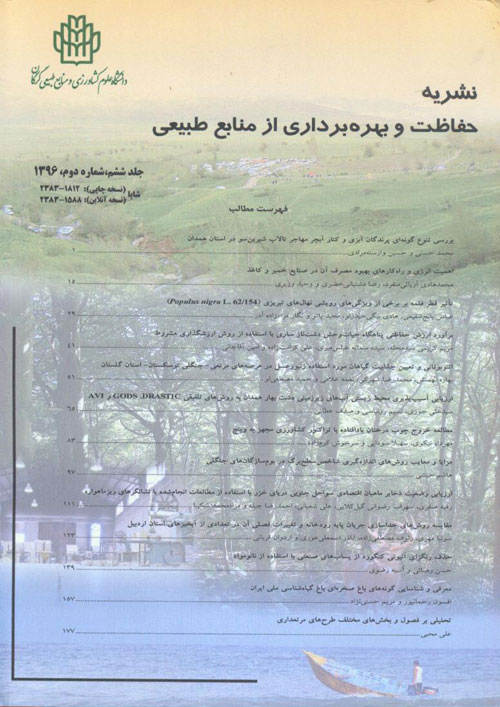Rangelands Enclosure Adoption: A Case pastoralists of Bozdaghi Rangelands in North-Khorasan Province
Author(s):
Abstract:
Rangelands enclosure is an important management tool in protection and restoration of rangelands. Enclosure can improve rangelands’ status and trends and also its capacity. In case of time there are three types of rangelands enclosure which include short-time, medium-time and long-time enclosure. The aim of short-time and medium-time enclosures is to revitalize natural establishment of palatable plant species. Long-time enclosure is used for conservation of genetic resources and monitoring of range succession and trend. This research investigated the long-time and short-time enclosures adoption among pastoralists of Bozdaghi region located in Ashkhaneh of North Khorasan province. Survey research was used in which 60 pastoralists were studied. The results showed that the adoption of long-time enclosure could be evaluated at low to moderate level. In this regard, the adoption of short-time enclosures was at high to higher level. The reasons for opposing long-time enclosure were: shortage of forage for livestock, lack of rangelands for grazing and the shortage of land for agriculture. Most pastoralists believed that long-time enclosure should be done when the shortage of forage for feeding pastoralists’ animals be compensated, agricultural lands located in high lands be available by the government for cultivation or pastoralists receive some other lands for cultivation instead of their ranges enclosure and low interest loan be available for pastoralists.
Keywords:
Language:
Persian
Published:
Journal of Conservation and Utilization of Natural Resources, Volume:1 Issue: 2, 2012
Page:
57
https://magiran.com/p1133807
مقالات دیگری از این نویسنده (گان)
-
Environmentally-Friendly Behaviors among Citizens and the Relationship with moral values the Case Study of Gorgan City
*, MohammadReza Shahraki
Journal of Sustainable City, -
The indigenous knowledge of camel husbandry in Kalkooyi nomads territory
Alinaghi Gooya *, Hossein Barani,
Journal of Indigenous Knowledge,



